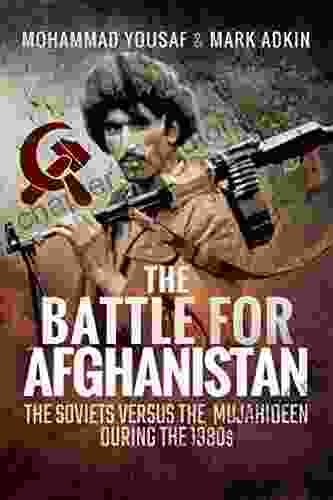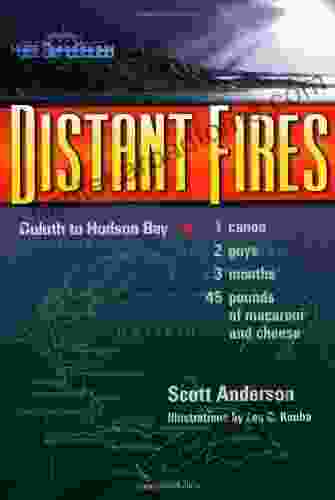The Soviet-Afghan War: A Clash of Ideologies and Brutal Combat

The Soviet-Afghan War, a brutal conflict that lasted from 1979 to 1989, was a defining moment in the Cold War. The Soviet Union, seeking to prop up a communist government in Afghanistan, invaded the country and found itself mired in a bloody and costly war against the Afghan mujahideen, who were supported by the United States and other Western powers.
The war had a profound impact on both the Soviet Union and Afghanistan. For the Soviets, it was a humiliating defeat that contributed to the collapse of the USSR. For Afghanistan, it was a devastating conflict that left the country in ruins and created a breeding ground for extremism.
4.3 out of 5
| Language | : | English |
| File size | : | 7794 KB |
| Text-to-Speech | : | Enabled |
| Screen Reader | : | Supported |
| Enhanced typesetting | : | Enabled |
| Word Wise | : | Enabled |
| Print length | : | 331 pages |
| Lending | : | Enabled |
The Roots of the Conflict
The origins of the Soviet-Afghan War can be traced back to the rise of the communist People's Democratic Party of Afghanistan (PDPA) in the 1970s. The PDPA seized power in a coup in 1978 and began implementing a radical agenda of social and economic reforms.
These reforms, which included land redistribution and the emancipation of women, alienated many Afghans, particularly in the conservative rural areas. The PDPA government also faced growing opposition from Islamic fundamentalist groups, who saw the communists as a threat to their way of life.
In response to the growing unrest, the Soviet Union sent military advisers and equipment to Afghanistan in 1979. However, the Soviet presence only further inflamed tensions, and in December 1979, the Soviet Union launched a full-scale invasion of Afghanistan.
The War
The Soviet invasion of Afghanistan triggered a massive uprising by the Afghan mujahideen, who were supported by the United States and other Western powers. The mujahideen, who were organized into a loose network of guerrilla groups, fought a fierce and effective resistance against the Soviet occupiers.
The Soviets responded with brutal tactics, including indiscriminate bombing of civilian populations and the use of chemical weapons. However, the mujahideen, who were fighting on their own territory and had the support of the local population, proved to be a formidable foe.
The war dragged on for years, with neither side able to achieve a decisive victory. The Soviets gradually increased their troop strength in Afghanistan, but the mujahideen continued to launch effective guerrilla attacks.
The Impact of the War
The Soviet-Afghan War had a devastating impact on both the Soviet Union and Afghanistan. For the Soviets, it was a humiliating defeat that contributed to the collapse of the USSR. The war cost the Soviet Union an estimated 15,000 lives and billions of dollars in matériel.
For Afghanistan, the war was a national tragedy that left the country in ruins. The war killed an estimated 1 million Afghans and displaced millions more. The country's infrastructure was destroyed, and its economy was crippled.
The war also created a breeding ground for extremism. The mujahideen, who were funded and armed by the United States and other Western powers, included many radical elements who later went on to form terrorist groups such as al-Qaeda.
The Legacy of the War
The Soviet-Afghan War is a complex and controversial conflict that has had a profound impact on the world. The war was a major turning point in the Cold War, and it continues to shape the geopolitical landscape of the Middle East today.
The war also had a significant impact on the United States. The war was a major factor in the Reagan administration's decision to increase defense spending and to adopt a more aggressive foreign policy. The war also contributed to the rise of neoconservatism in the United States.
The Soviet-Afghan War is a reminder of the dangers of foreign intervention and the importance of respecting the sovereignty of other nations. The war also shows the resilience of the human spirit and the power of resistance against tyranny.
The Soviet-Afghan War was a defining moment in the Cold War and a major turning point in world history. The war had a profound impact on both the Soviet Union and Afghanistan, and it continues to shape the geopolitical landscape of the Middle East today. The war is a reminder of the dangers of foreign intervention and the importance of respecting the sovereignty of other nations. It is also a testament to the resilience of the human spirit and the power of resistance against tyranny.
4.3 out of 5
| Language | : | English |
| File size | : | 7794 KB |
| Text-to-Speech | : | Enabled |
| Screen Reader | : | Supported |
| Enhanced typesetting | : | Enabled |
| Word Wise | : | Enabled |
| Print length | : | 331 pages |
| Lending | : | Enabled |
Do you want to contribute by writing guest posts on this blog?
Please contact us and send us a resume of previous articles that you have written.
 Book
Book Novel
Novel Page
Page Chapter
Chapter Text
Text Story
Story Genre
Genre Reader
Reader Library
Library Paperback
Paperback E-book
E-book Magazine
Magazine Newspaper
Newspaper Paragraph
Paragraph Sentence
Sentence Bookmark
Bookmark Shelf
Shelf Glossary
Glossary Bibliography
Bibliography Foreword
Foreword Preface
Preface Synopsis
Synopsis Annotation
Annotation Footnote
Footnote Manuscript
Manuscript Scroll
Scroll Codex
Codex Tome
Tome Bestseller
Bestseller Classics
Classics Library card
Library card Narrative
Narrative Biography
Biography Autobiography
Autobiography Memoir
Memoir Reference
Reference Encyclopedia
Encyclopedia Nicholle Brock
Nicholle Brock Monte Palmer
Monte Palmer Michael J Lambert
Michael J Lambert Sundar Rushdie
Sundar Rushdie Richard Hood
Richard Hood Michael Brenner
Michael Brenner Walter Gander
Walter Gander Michael T Rayburn
Michael T Rayburn Michael Endwell
Michael Endwell Diana L Paxson
Diana L Paxson Steve Blamires
Steve Blamires Philipp Winterberg
Philipp Winterberg Muhammad Sarfraz
Muhammad Sarfraz Warren Bobrow
Warren Bobrow Moe Alodah
Moe Alodah Ted Lazaris
Ted Lazaris Michelle Mckinney Hammond
Michelle Mckinney Hammond Robyn Wall
Robyn Wall Robert Stupack
Robert Stupack S Roystone Neverson
S Roystone Neverson
Light bulbAdvertise smarter! Our strategic ad space ensures maximum exposure. Reserve your spot today!
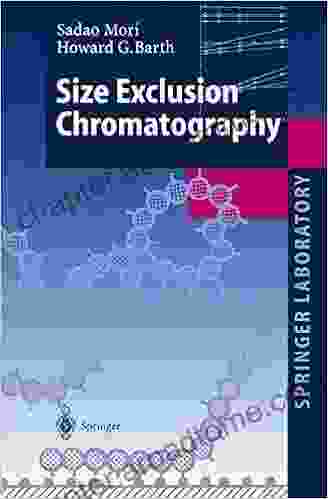
 Ken FollettUnveiling the Power of Size Exclusion Chromatography: A Comprehensive Guide...
Ken FollettUnveiling the Power of Size Exclusion Chromatography: A Comprehensive Guide... Deacon BellFollow ·19.5k
Deacon BellFollow ·19.5k Patrick HayesFollow ·7.8k
Patrick HayesFollow ·7.8k Hugh ReedFollow ·14.9k
Hugh ReedFollow ·14.9k Clay PowellFollow ·8.2k
Clay PowellFollow ·8.2k Chase SimmonsFollow ·11.9k
Chase SimmonsFollow ·11.9k Blake BellFollow ·18.4k
Blake BellFollow ·18.4k Paulo CoelhoFollow ·15.8k
Paulo CoelhoFollow ·15.8k Ruben CoxFollow ·8.1k
Ruben CoxFollow ·8.1k
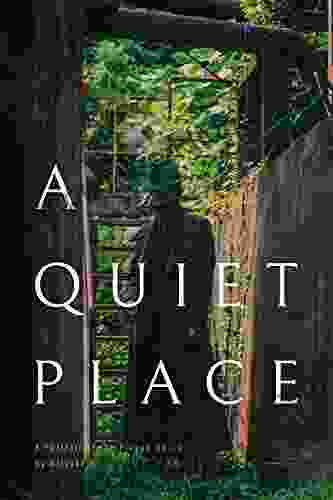
 Samuel Beckett
Samuel BeckettPortrait of the Plague Doctor: A Chilling Tale of Fear...
Prologue: A...

 Elliott Carter
Elliott CarterTrends in Modeling and Simulation Studies in...
Unveiling the Convergence of...

 Natsume Sōseki
Natsume SōsekiCells For Kids: Science For Children
Unlock the Microscopic...

 Anthony Wells
Anthony WellsUnlock the Power of Understanding: Embrace the African...
Embark on a Journey of Truth,...
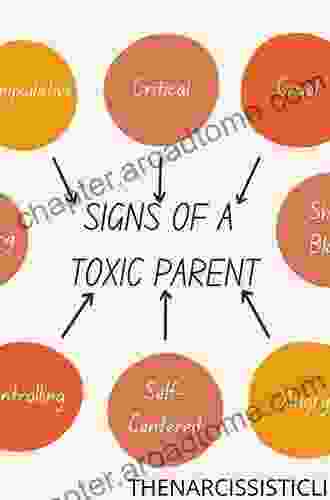
 Forrest Reed
Forrest ReedBreaking Free: Healing from Toxic Relationships Between...
Are you struggling...
4.3 out of 5
| Language | : | English |
| File size | : | 7794 KB |
| Text-to-Speech | : | Enabled |
| Screen Reader | : | Supported |
| Enhanced typesetting | : | Enabled |
| Word Wise | : | Enabled |
| Print length | : | 331 pages |
| Lending | : | Enabled |


